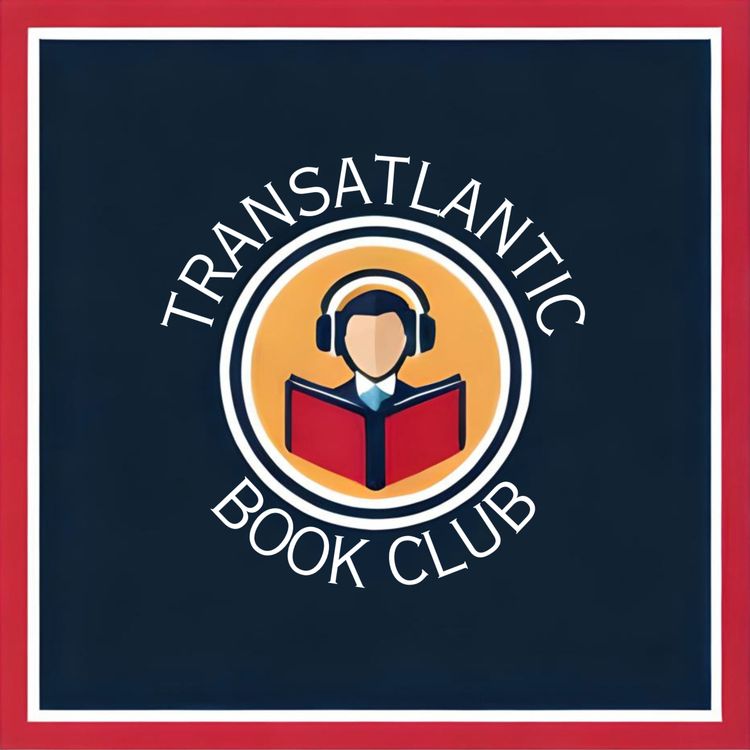Share

The Transatlantic Book Club
Book 2 Ep. 2: Six Days of War
In this episode of the Transatlantic Book Club, we dive into the gripping narrative of Michael B. Oren's "Six Days of War: June 1967 and the Making of the Modern Middle East." This meticulously researched work sheds light on the momentous Six-Day War, a conflict that reshaped the Middle East and continues to influence the region to this day.
Oren's comprehensive account takes readers through the complex
political landscape leading up to the war, the strategic decisions made by key
players, and the swift, decisive actions taken by Israel in response to the
mounting tensions with its Arab neighbors. The book explores the roles of major
global powers, such as the United States and the Soviet Union, and how their
interests and actions influenced the course of the war.
We discuss the book's key themes, including the legacy of the
war, its impact on Arab-Israeli relations, and its lasting implications for the
region and the world.
Join the Transatlantic Book Club as we explore the historical
context, military strategies, and diplomatic maneuverings that defined the
Six-Day War, and discover how this brief but consequential conflict continues
to shape the modern Middle East.
More episodes
View all episodes

Book 4 Ep. 2: The Master and Margarita
02:01:02|In this episode of The Transatlantic Book Club, Nathan and Lee descend into the dazzling, demonic, and deeply satirical world of Mikhail Bulgakov's The Master and Margarita.Join us as we untangle this Soviet masterpiece and ask the questions you won't hear in any literature class, including:Why is Mikhail Bulgakov basically Steve Bannon?What does a little-known company called Nvidia have to do with any of this?What would we do if we went to Russia?Why isn't food about emotions? (Or is it?)Did Bulgakov write some accidental homophobia into his classic?And what is the most arrogant nickname you can give ourselves?Tune in for a discussion that’s as chaotic and captivating as the novel itself.Ep 2 of 2.
Book 4 Ep. 1: The Master and Margarita
02:01:02|In this episode of The Transatlantic Book Club, Nathan and Lee descend into the dazzling, demonic, and deeply satirical world of Mikhail Bulgakov's The Master and Margarita.Join us as we untangle this Soviet masterpiece and ask the questions you won't hear in any literature class, including:Why is Mikhail Bulgakov basically Steve Bannon?What does a little-known company called Nvidia have to do with any of this?What would we do if we went to Russia?Why isn't food about emotions? (Or is it?)Did Bulgakov write some accidental homophobia into his classic?And what is the most arrogant nickname you can give ourselves?Tune in for a discussion that’s as chaotic and captivating as the novel itself.Ep 1 of 2.
9. Book 3 Ep. 4: Against Empathy
47:39||Ep. 9In this episode of The Transatlantic Book Club, your hosts Nathan and Lee dive headfirst into Paul Bloom’s bold and controversial book, Against Empathy: The Case for Rational Compassion. We unpack Bloom’s central argument—that empathy, often celebrated as a moral compass, may actually lead to biased and harmful decision-making.Join us as we explore the psychological, ethical, and philosophical layers of Bloom’s thesis, debate its real-world implications, and reflect on how it challenges common assumptions about morality and compassion. Whether you agree or disagree, this conversation will leave you thinking differently about the role of empathy in your life.Part 4 of the full episode
8. Book 3 Ep. 3: Against Empathy
01:00:41||Ep. 8In this episode of The Transatlantic Book Club, your hosts Nathan and Lee dive headfirst into Paul Bloom’s bold and controversial book, Against Empathy: The Case for Rational Compassion. We unpack Bloom’s central argument—that empathy, often celebrated as a moral compass, may actually lead to biased and harmful decision-making.Join us as we explore the psychological, ethical, and philosophical layers of Bloom’s thesis, debate its real-world implications, and reflect on how it challenges common assumptions about morality and compassion. Whether you agree or disagree, this conversation will leave you thinking differently about the role of empathy in your life.Part 3 of the full episode
7. Book 3 Ep.2: Against Empathy
01:00:43||Ep. 7In this episode of The Transatlantic Book Club, your hosts Nathan and Lee dive headfirst into Paul Bloom’s bold and controversial book, Against Empathy: The Case for Rational Compassion. We unpack Bloom’s central argument—that empathy, often celebrated as a moral compass, may actually lead to biased and harmful decision-making.Join us as we explore the psychological, ethical, and philosophical layers of Bloom’s thesis, debate its real-world implications, and reflect on how it challenges common assumptions about morality and compassion. Whether you agree or disagree, this conversation will leave you thinking differently about the role of empathy in your life.Part 2 of the full episode
6. Book 3 Ep. 1: Against Empathy
59:40||Ep. 6In this episode of The Transatlantic Book Club, your hosts Nathan and Lee dive headfirst into Paul Bloom’s bold and controversial book, Against Empathy: The Case for Rational Compassion. We unpack Bloom’s central argument—that empathy, often celebrated as a moral compass, may actually lead to biased and harmful decision-making.Join us as we explore the psychological, ethical, and philosophical layers of Bloom’s thesis, debate its real-world implications, and reflect on how it challenges common assumptions about morality and compassion. Whether you agree or disagree, this conversation will leave you thinking differently about the role of empathy in your life.Part 1 of the full episode
5. Book 2 Ep.3: Six Days of War
59:17||Ep. 5In this episode of the Transatlantic Book Club, we dive into the gripping narrative of Michael B. Oren's "Six Days of War: June 1967 and the Making of the Modern Middle East." This meticulously researched work sheds light on the momentous Six-Day War, a conflict that reshaped the Middle East and continues to influence the region to this day.Oren's comprehensive account takes readers through the complexpolitical landscape leading up to the war, the strategic decisions made by keyplayers, and the swift, decisive actions taken by Israel in response to themounting tensions with its Arab neighbors. The book explores the roles of majorglobal powers, such as the United States and the Soviet Union, and how theirinterests and actions influenced the course of the war.We discuss the book's key themes, including the legacy of thewar, its impact on Arab-Israeli relations, and its lasting implications for theregion and the world.Join the Transatlantic Book Club as we explore the historicalcontext, military strategies, and diplomatic maneuverings that defined theSix-Day War, and discover how this brief but consequential conflict continuesto shape the modern Middle East.
3. Book 2 Ep.1: Six Days of War
01:00:59||Ep. 3In this episode of the Transatlantic Book Club, we dive into the gripping narrative of Michael B. Oren's "Six Days of War: June 1967 and the Making of the Modern Middle East." This meticulously researched work sheds light on the momentous Six-Day War, a conflict that reshaped the Middle East and continues to influence the region to this day.Oren's comprehensive account takes readers through the complex political landscape leading up to the war, the strategic decisions made by key players, and the swift, decisive actions taken by Israel in response to the mounting tensions with its Arab neighbors. The book explores the roles of major global powers, such as the United States and the Soviet Union, and how their interests and actions influenced the course of the war.We discuss the book's key themes, including the legacy of the war, its impact on Arab-Israeli relations, and its lasting implications for the region and the world.Join the Transatlantic Book Club as we explore the historical context, military strategies, and diplomatic maneuverings that defined the Six-Day War, and discover how this brief but consequential conflict continues to shape the modern Middle East.